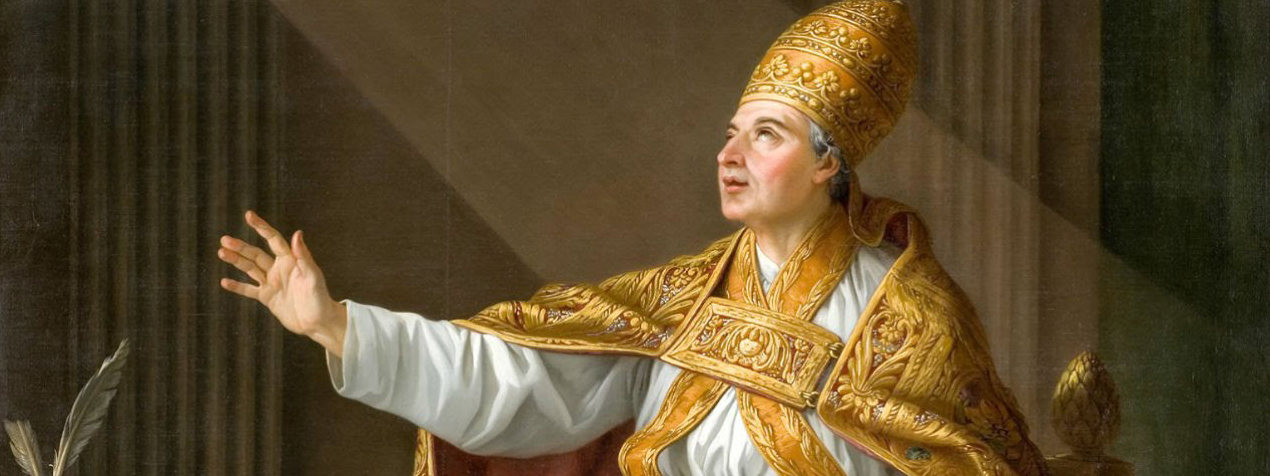St Gregory
St Gregory’s Humble Heart
Gregory came from a wealthy family and his great-grandfather was Pope Felix III. His mother and father were Silvia and Gordianus and his younger brother, Palatinus. He also had three aunts Tarsilla, Armiliana and Gordiana.
Gregory‘s name means “watchful”. Whether as a leader in civil society, a monastery, or later as Pope, he ‘looked out’ for opportunities to protect, nurture and challenge people to live out gospel values. Almost constantly ill, and prone to nervous stress, he particularly identified with the sick.
Gregory believed that humility was “the Mother and Guardian of all the virtues” enhancing the dignity of every person. He noted that Jesus, in describing himself as “gentle and humble in heart” (Mt 11:29), shows us what it is to be fully human and fully alive. By being both contemplative and active ourselves, we can share his character traits of prudence, justice, fortitude and temperance.
Perseverance and good judgement enabled Gregory’s eagle-eye for detail to spot what Jesus wanted him to ‘zero’ in on next. He kept his feet ‘firmly on the ground’ talking, constantly, about the importance of humility- which itself comes from a latin word meaning ‘earth’. Building upon this solid foundation, his approach to exercising authority was ‘firm but fair’, pragmatic and yet far-sighted.
Gregory, loved his life as a monk and was a reluctant bishop. He became Pope during one of the frequent plagues to impact Rome in seventh century. Faced with the threats of disease, famine and invasion, he immediately responded to the suffering of so many around him. As an able administrator he reorganized, radically, the use of papal finances, land and buildings focusing them on charitable works. He called himself “the steward of the property of the poor”. Gregory was the first Pontiff to systematically direct funds, produce and resources from the Vatican’s estates, in such creative and purposeful ways. He arranged pensions for his employees and made donations of food and clothing to the wider community. He cancelled debts, paid the rent for those in poverty and supported the rich if they were struggling. He had the vision and imagination, amidst the circumstances of a pandemic lockdown, to set up a courier service which delivered meals to the sick and infirm. He championed the cause of parents, who were being forced into the appalling position of desperately raising money by selling their children as slaves, because of the oppressive policies of the Empress. Gregory also represented the soap-boilers of Naples. He ensured a proper water supply for Rome and, unlike other Pope’s, only agreed to building projects if they were absolutely necessary.
Gregory was level-headed enough to recognise that church teaching must concentrate on connecting any abstract ideas to simple examples drawn from daily life -as Jesus did. Gregory emphasized that priests ought to be “heard rather by deeds than words“ leaving “the imprint of footsteps for men to tread in”. He maintained that clergy should be shepherds living beside their flocks rather than ‘lording’ it over them. He encouraged preachers to draw on every aspects of their education when communicating with their parishioners. His own sermons and writings shared his broad knowledge of literature, history, mathematics, music and the natural world.
Gregory wanted to spread the gospel beyond Italy and sent Augustine (who became a Saint linked with Canterbury) to convert the Anglo Saxon tribes in England. He advised him not to ‘impose’ Christianity on the population but, sensitively, ‘propose’ it by, for instance, adapting local customs around the celebration of saints and martyrs.
In the midst of any difficulties, big or small, Gregory was always comforted by the Bible. Every passage, he said, was like a “four-sided stone” which could be understood in the following ways: by recovering its original historical context(1); interpreting the verses, in light of Christ coming for current times (2); viewing the text as a call to deeper conversion (3); or, as representing an anticipation of heaven (4). Gregory taught that sacred scripture is “set up as a kind of Lantern for us in the night of this life”.
In conclusion, St Gregory was: grateful and generous; attentive and discerning; compassionate and loving; faith filled and hopeful; eloquent and truthful; learned and wise; curious and active; Intentional and prophetic. May we follow his example.

